The ego-shell in which we live is the hardest thing to outgrow.
D.T. SUZUKIThat’s why I love philosophy: no one wins.
More D.T. Suzuki Quotes
-





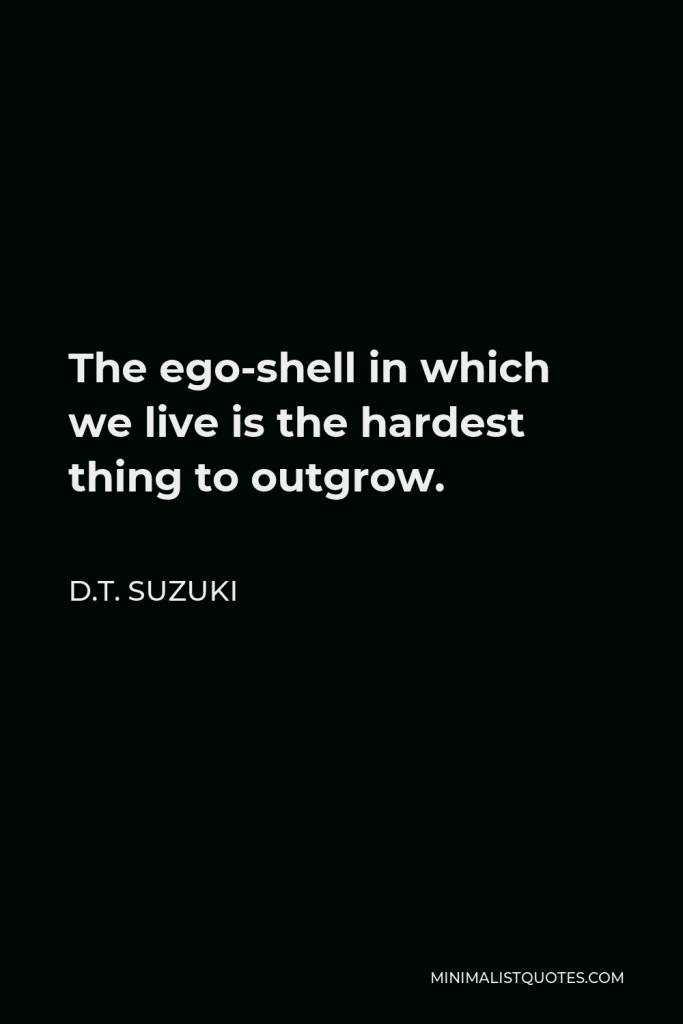

-





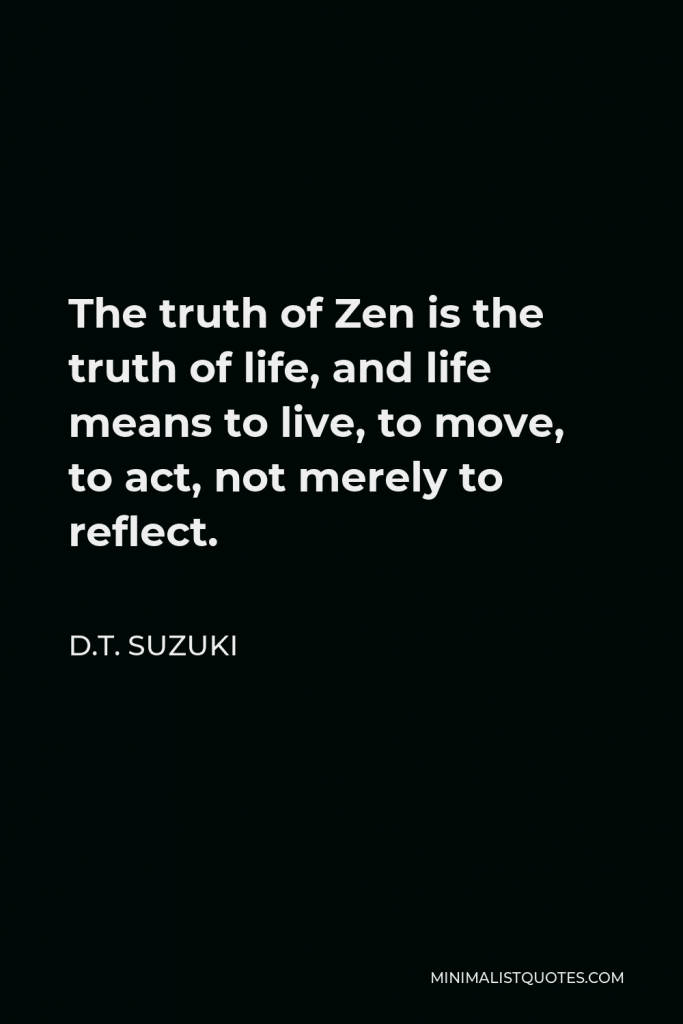

The truth of Zen is the truth of life, and life means to live, to move, to act, not merely to reflect.
D.T. SUZUKI -






Unless we agree to suffer we cannot be free from suffering.
D.T. SUZUKI -





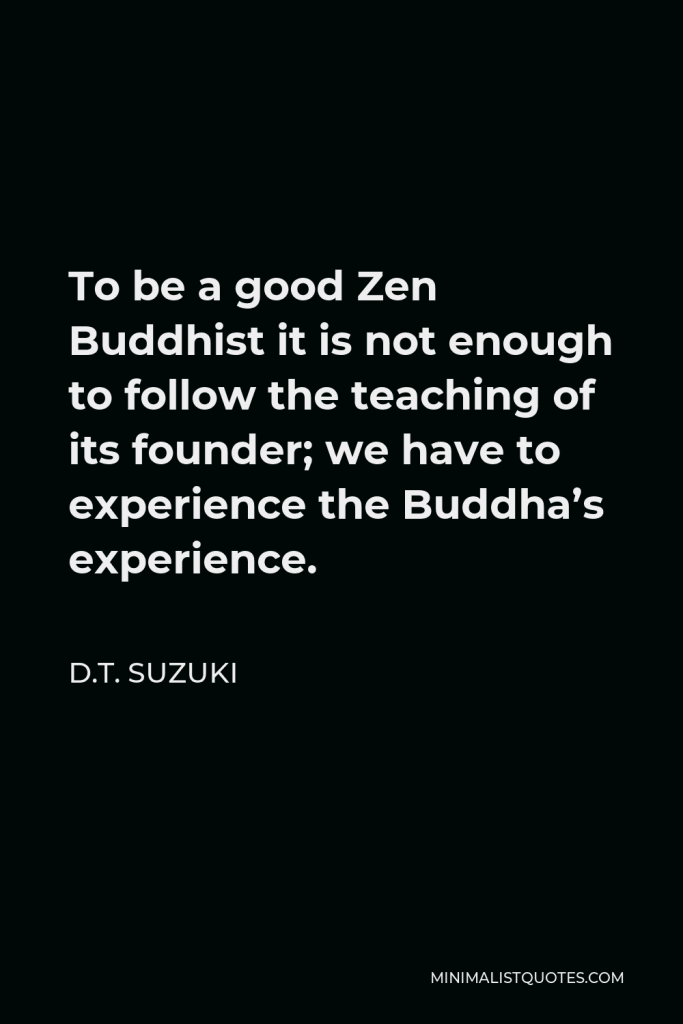

To be a good Zen Buddhist it is not enough to follow the teaching of its founder; we have to experience the Buddha’s experience.
D.T. SUZUKI -






To Zen, time and eternity are one.
D.T. SUZUKI -





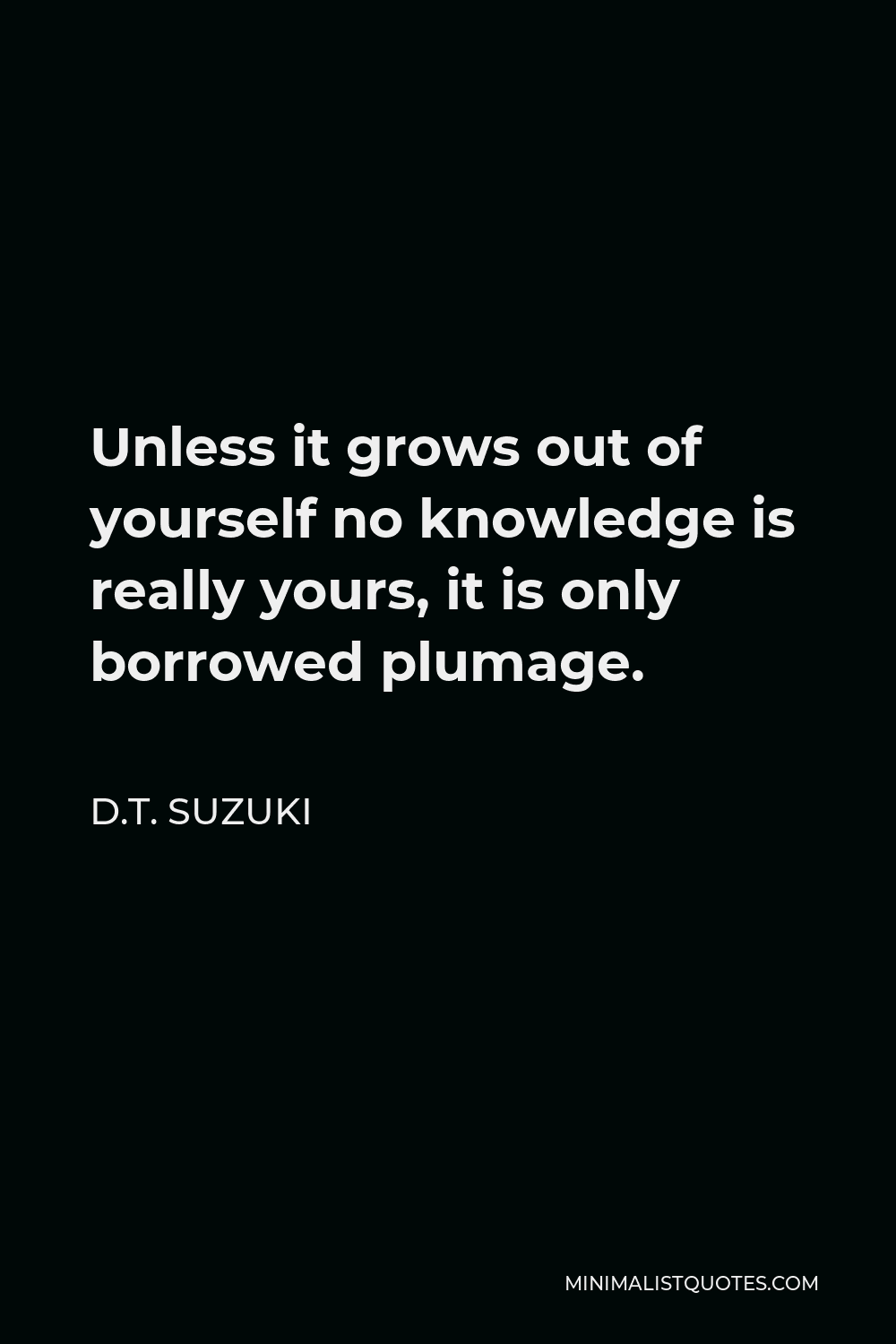
Unless it grows out of yourself no knowledge is really yours, it is only borrowed plumage.
D.T. SUZUKI -





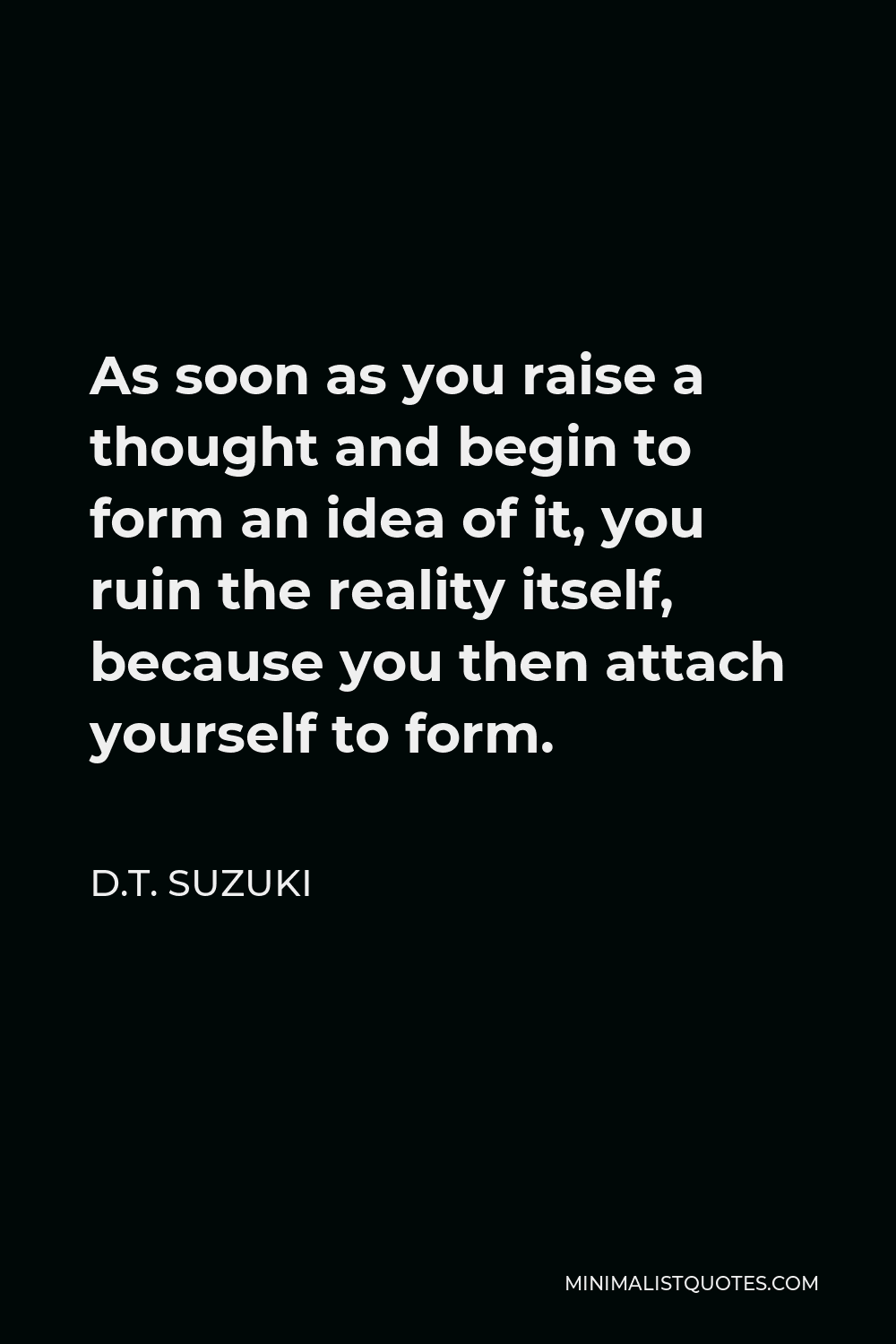
As soon as you raise a thought and begin to form an idea of it, you ruin the reality itself, because you then attach yourself to form.
D.T. SUZUKI -







When the identity is realized, I as swordsman see no opponent confronting me and threatening to strike me.
D.T. SUZUKI -





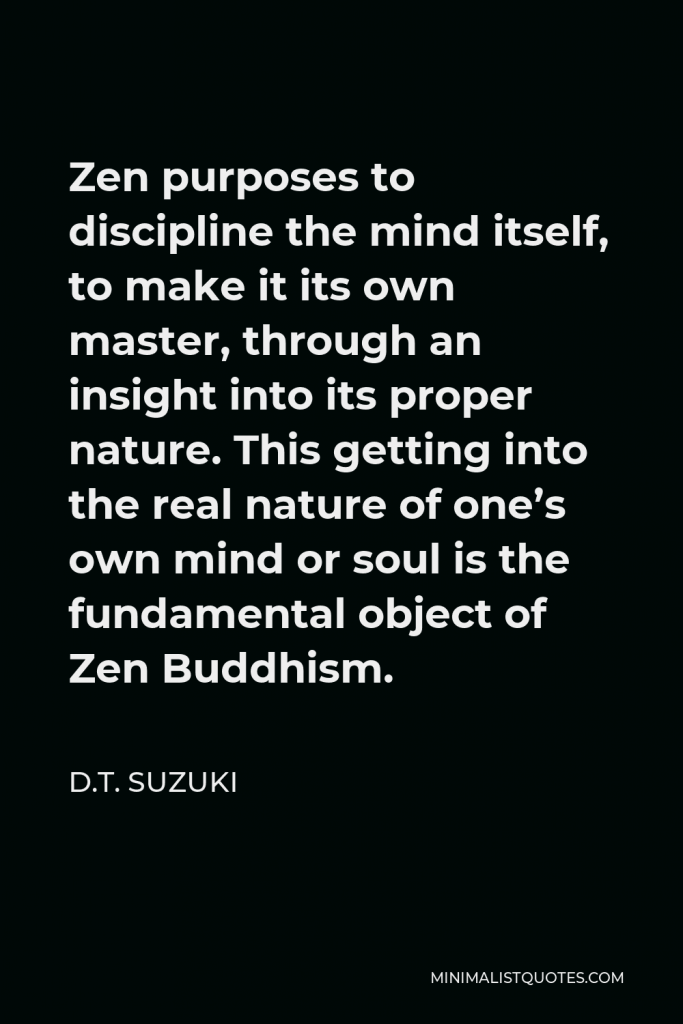

Zen purposes to discipline the mind itself, to make it its own master, through an insight into its proper nature. This getting into the real nature of one’s own mind or soul is the fundamental object of Zen Buddhism.
D.T. SUZUKI -





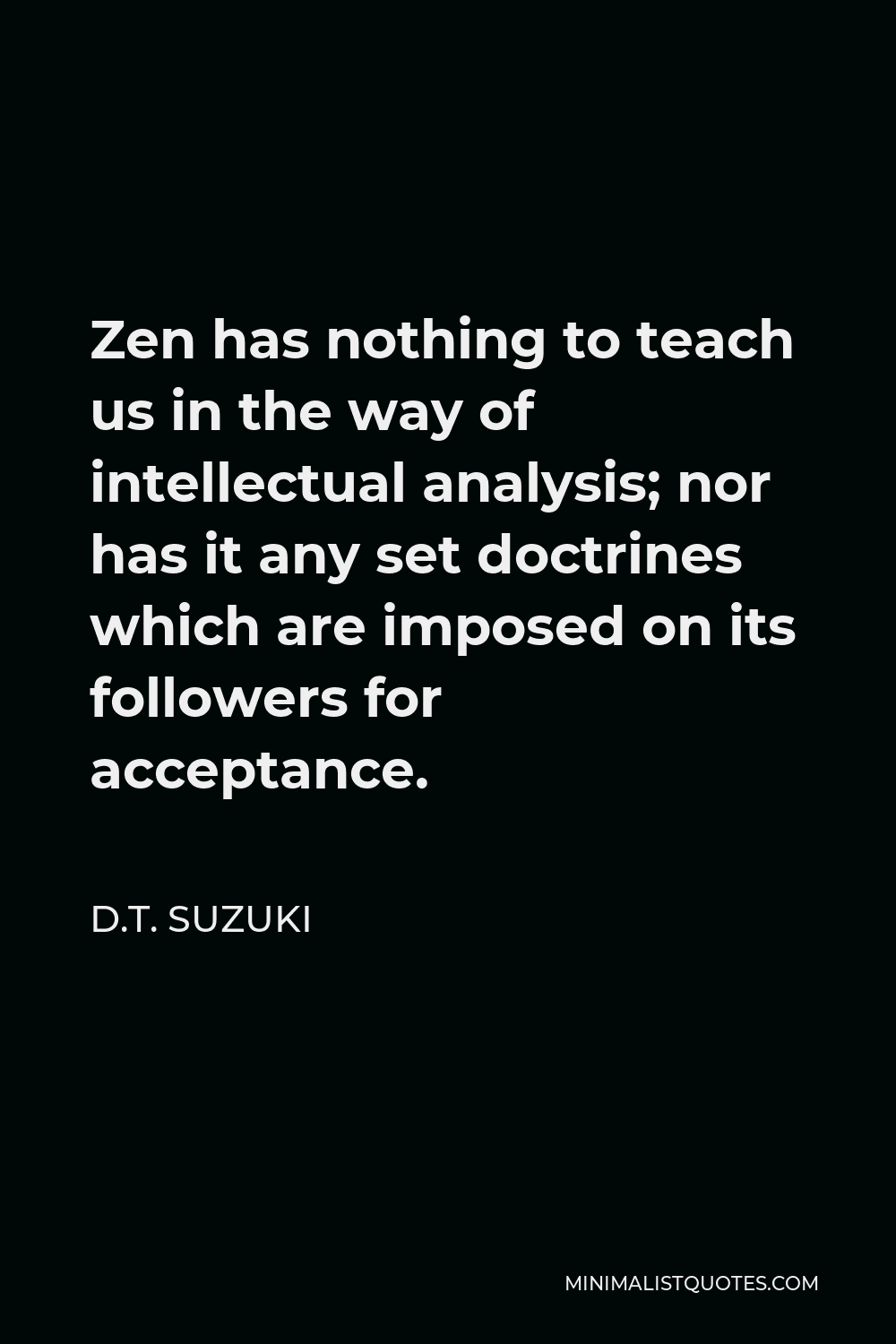
Zen has nothing to teach us in the way of intellectual analysis; nor has it any set doctrines which are imposed on its followers for acceptance.
D.T. SUZUKI -






If you have attained something, this is the surest proof that you have gone astray. Therefore, not to have is to have, silence is thunder, ignorance is enlightenment.
D.T. SUZUKI -






That’s why I love philosophy: no one wins.
D.T. SUZUKI -






The claim of the Zen followers that they are transmitting the essence of Buddhism is based on their belief that Zen takes hold of the enlivening spirit of the Buddha, stripped of all its historical and doctrinal garments.
D.T. SUZUKI -





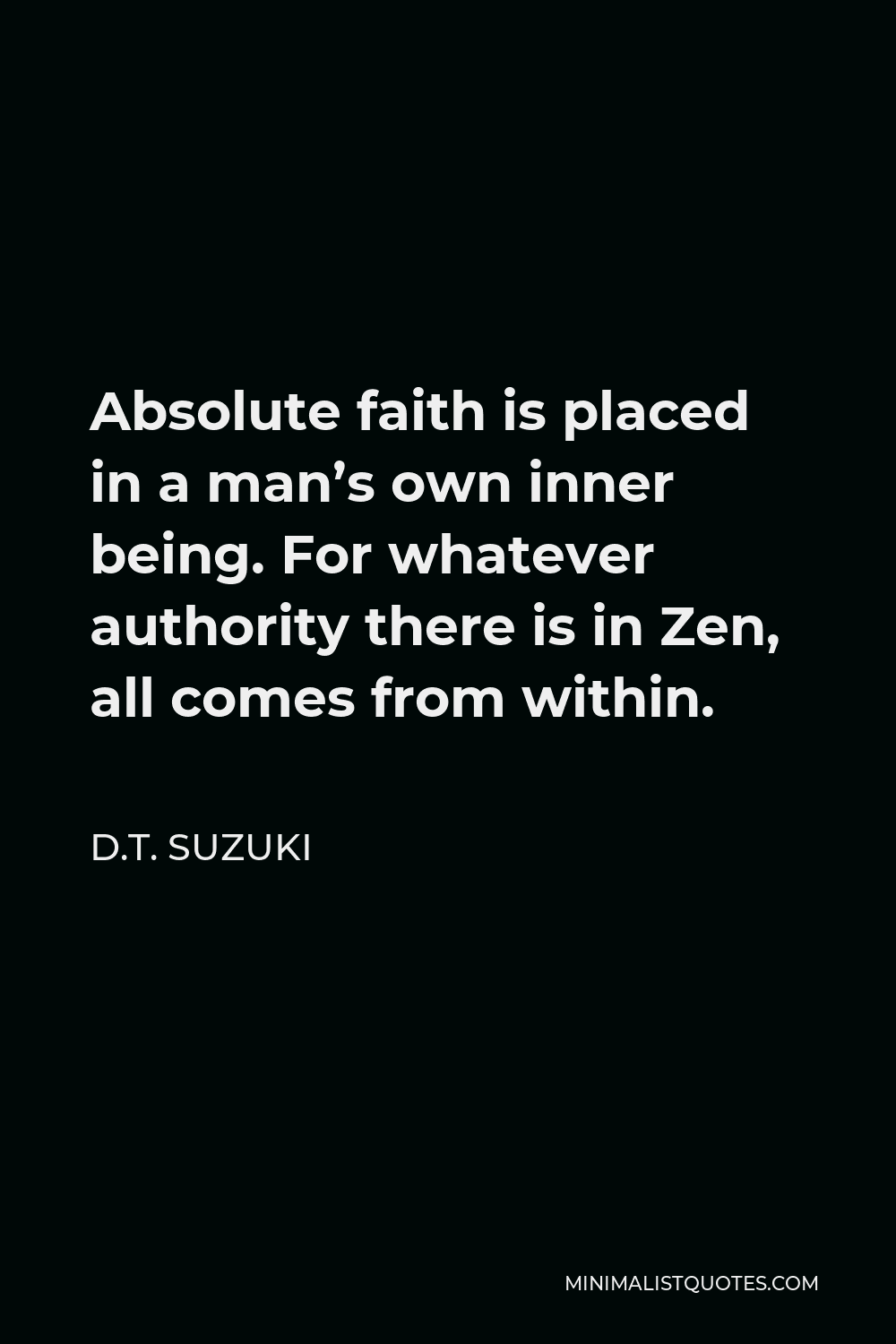
Absolute faith is placed in a man’s own inner being. For whatever authority there is in Zen, all comes from within.
D.T. SUZUKI -






Prophecy is rash, but it may be that the publication of D.T. Suzuki’s first Essays in Zen Buddhism in 1927 will seem to future generations as great an intellectual event as William of Moerbeke’s Latin translations of Aristotle in the thirteenth century or Marsiglio Ficino’s of Plato in the fifteenth.
D.T. SUZUKI -






Zen has no business with ideas.
D.T. SUZUKI






